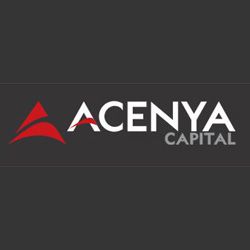In recent years, more and more businesses around the world have begun to accept cryptocurrencies as a viable payment method. With the rise of bitcoin and other digital currencies like ethereum, merchants are increasingly looking to accept bitcoin payments to attract a broader customer base. This shift allows business owners to offer customers a new payment option that is often faster and more secure than traditional payment methods. By utilizing a crypto payment gateway, businesses can process crypto transactions efficiently while managing transaction fees and processing fees that may be associated with each transaction.

Small businesses, in particular, are discovering the advantages of accepting crypto as part of their payment systems. Setting up a crypto payment processor allows these businesses to accept payments through various cryptocurrencies, providing customers with the flexibility to pay using their crypto wallet. This modern payment experience can enhance customer satisfaction and increase transaction speed, making it an attractive option for many online stores. As cryptocurrency prices continue to fluctuate, the ability to convert bitcoin and other crypto assets into local currency can also benefit merchants, ensuring they remain competitive in the evolving digital landscape.
Crypto payments for business explained
In today’s digital landscape, many businesses are exploring how to accept crypto payments as a viable form of payment. By integrating cryptocurrency transactions into their operations, merchants can tap into a growing market of customers who prefer using digital currencies like bitcoin and ethereum. To facilitate crypto payments, businesses need to set up a cryptocurrency wallet or partner with cryptocurrency payment processors that streamline the cryptocurrency payment process.
For those interested in starting to accept crypto, it’s essential to understand the different types of crypto available and how they compare to fiat currencies like the US dollar.
Accepting bitcoin and other cryptocurrencies can enhance customer experience on an ecommerce platform by providing an alternative to traditional card payments. However, businesses must also consider the challenges of accepting cryptocurrency payments, such as volatility and converting crypto into local currency, to ensure smooth payments for your business.
By embracing crypto payments as a business strategy, companies can diversify their revenue streams and attract tech-savvy clientele. As more customers look for flexibility in payments within their shopping experiences, learning how to accept these digital currencies will become increasingly important. With the right tools and knowledge, businesses can seamlessly integrate credit card payments alongside crypto, enhancing their overall payment ecosystem.
Cryptocurrency payment gateway
In today’s digital economy, businesses looking to accept new payment methods are increasingly turning to cryptocurrency payment gateways. These platforms enable merchants to accept digital payments in the form of cryptocurrencies like bitcoin and ethereum, allowing them to start accepting crypto with ease. By integrating a crypto payment service into their existing payment systems, businesses can smoothly transition to acceptance of crypto payments without disrupting their current operations.
With the rise of bitcoin transactions and the growing popularity of buying and selling cryptocurrency, it’s essential for merchants to accept payments in your online store. Utilizing crypto payment methods can help set up your business for future growth, allowing you to manage crypto payments efficiently. By partnering with reliable crypto payment providers, you can start accepting bitcoin and other digital currencies, positioning your brand at the forefront of innovation.
How to accept cryptocurrency payments as a business
To accept cryptocurrency payments as a business, you can start by integrating a payment processor to facilitate transactions. This will enable you to receive crypto directly into your existing payment system, allowing for seamless business transactions. Many processors support popular options like bitcoin and other cryptocurrencies, making it easier for customers to make crypto payments.
Once integrated, you can offer in-store payments or online checkout options that accept payments using bitcoin and other different crypto currencies. Compared to traditional credit card processing fees, fees for payments using crypto can be significantly lower, allowing you to boost business by reducing overall transaction costs. This modern approach not only attracts a new customer base but also positions your business as forward-thinking in a rapidly evolving financial landscape.
Step 1 – Select your provider
Step 1 in your journey to embracing digital finance is to select your provider. This choice is crucial, as it will determine how you can manage your payments into your existing accounts. Look for platforms that support bitcoin or other cryptocurrencies, as these are increasingly popular in today’s financial landscape.
When choosing a provider, consider those that facilitate using crypto payments effectively. Many services now allow you to conduct transactions with cryptocurrency and bitcoin seamlessly, offering a modern alternative to traditional banking.
Additionally, examine the transaction costs associated with each provider. Generally, you may find that fees for crypto transactions are lower than those for a credit card. This can make your experience more economical, especially when dealing with popular crypto options that are widely accepted.
Why NOWPayments is the Best Provider
NOWPayments stands out as an ideal choice for anyone looking to integrate crypto payments. With support for over 300 cryptocurrencies, NOWPayments makes it easy to handle multiple digital assets, ensuring flexibility and convenience. It offers low transaction fees, providing an economical alternative to traditional banking and payment methods.
NOWPayments also prioritizes ease of use, allowing seamless integration for businesses of all sizes, from online stores to large enterprises, making crypto payments straightforward and accessible.
Moreover, with NOWPayments, you’ll benefit from top-tier security features and customizable tools designed to enhance the customer payment experience. By choosing NOWPayments, you’re partnering with a trusted and forward-thinking provider that continuously innovates to meet the demands of the evolving financial landscape.
Step 2 – Integrate into your website
Once you have chosen the payment solution that suits your needs, the next crucial step is to integrate into your website. This process involves embedding the payment gateway into your online platform to ensure seamless transactions. By doing so, you can facilitate transactions that are used for payments and provide your customers with a hassle-free checkout experience.
It’s also essential to consider the cost implications of your chosen payment method. Many businesses are shifting towards alternatives that offer lower fees than credit card transactions. This shift can enhance profitability while maintaining customer satisfaction.
By integrating a payment solution that minimizes costs, you can optimize your business operations. Ultimately, this not only improves your revenue but also elevates the overall shopping experience for your users.
NOWPayments can be easily integrated into any business platform with just a few steps, offering a range of plugins and APIs that cater to various e-commerce solutions. Whether you’re using Shopify, WooCommerce, or a custom platform, NOWPayments provides user-friendly tools and dedicated support to ensure a smooth setup and operation.
Step 3 – Optimise for conversion
In the journey towards successful online marketing, the third step focuses on optimising for conversion. This process involves fine-tuning your website and marketing strategies to enhance user experience and drive more visitors to take desired actions, such as making a purchase or signing up for a newsletter. To achieve this, consider analysing user behaviour through tools like heatmaps and A/B testing, allowing you to identify what works best.
Another important aspect of conversion optimisation is to ensure your calls-to-action (CTAs) are clear and compelling. Make sure they stand out visually and use persuasive language that encourages users to engage. Additionally, reducing any potential friction points in the user journey, such as lengthy forms or complicated checkout processes, will lead to higher conversion rates.
Finally, continually monitor your results and adjust your strategies as needed. By employing a data-driven approach to optimising for conversion, you can significantly improve your overall marketing effectiveness and achieve your business goals.
Step 4 – Payment selection
Payment selection is a crucial phase in the transaction process, as it allows customers to choose their preferred method of payment. During this step, users are typically presented with various options such as credit cards, debit cards, digital wallets, and sometimes even bank transfers. Each payment option comes with its own set of advantages and drawbacks, which can influence the customer’s decision.
In this stage, it’s essential to ensure that the payment gateway is secure and user-friendly. Customers appreciate transparency regarding fees and processing times, as this fosters trust in the transaction. Additionally, providing multiple currency options can enhance the user experience, particularly for international customers.
Once the selection is made, users may be prompted to enter their payment details securely. It’s vital to maintain a streamlined process to avoid any potential drop-offs at this stage, ensuring that the journey towards completing the purchase remains smooth and efficient.
NOWPayments offers a comprehensive suite of payment options, including support for over 300 cryptocurrencies such as Bitcoin, Ethereum, and various stablecoins. This extensive range allows businesses to cater to a diverse customer base preferring digital currencies.
In addition to cryptocurrency payments, NOWPayments provides fiat on-ramp and off-ramp services:
- Fiat On-Ramp: This service enables customers to purchase cryptocurrencies using traditional fiat For instance, a customer can pay in euros, and the system will convert this payment into the selected cryptocurrency, facilitating seamless entry into the crypto ecosystem. (NowPayments)
- Fiat Off-Ramp: Conversely, the fiat off-ramp allows businesses to convert received cryptocurrency payments back into fiat This feature is particularly beneficial for merchants who prefer settling their accounts in traditional currencies, ensuring they can accept crypto payments without exposure to market volatility. (NowPayments)
These services are designed to integrate smoothly with existing business operations, providing flexibility and broadening the scope of payment acceptance.
Step 5 – Checking payment details
Checking payment details is a crucial part of any transaction process. Before finalizing a purchase, it is essential to carefully review the payment information provided. This includes the credit card number, expiration date, and CVV code, as errors can lead to transaction failures or potential fraud.
Additionally, ensure that the billing address matches the one associated with the payment method. Any discrepancies may raise red flags with financial institutions and delay the processing of your order.
Finally, double-check the total amount being charged, including any additional fees or taxes. Taking a moment to verify these details can save you from unexpected charges and provide peace of mind during your online shopping experience.
Step 6 – Making the payment
Once you have selected the desired product or service, making the payment is the next crucial step in the transaction process. It is essential to ensure that you are using a secure payment method to protect your financial information. Common options include credit cards, debit cards, and digital wallets, each offering varying levels of security and convenience.
Before finalizing the payment, double-check the total amount due, including any applicable taxes and shipping fees. This will help you avoid unexpected charges. If there are any promotional codes or discounts, make sure to apply them at this stage to maximize your savings.
After confirming the payment details, proceed to submit the transaction. You should receive a confirmation message or email shortly after, indicating that your payment has been successfully processed. Keep this confirmation for your records, as it serves as proof of your purchase.
Step 7 – Payment processing
Payment Processing is a crucial phase in any transaction journey, ensuring a seamless transfer of funds between the buyer and the seller. During this stage, various methods such as credit cards, digital wallets, and bank transfers are utilized to facilitate the payment. The payment gateway plays a significant role, acting as an intermediary that securely captures and transmits the transaction details to the payment processor.
In addition, security measures are paramount in this step. Advanced encryption technologies protect sensitive data, safeguarding against unauthorized access and fraud. Once the payment is authorized, the funds are settled, completing the transaction. It is essential for businesses to provide a user-friendly and efficient payment processing experience, as this can significantly impact customer satisfaction and retention.
Finally, thorough tracking and reporting of payments ensure transparency and assist in financial reconciliation. By optimizing payment processing, businesses can enhance their operational efficiency and improve overall customer experience.
Step 8 – Confirmation
Confirmation is a crucial phase in any process, ensuring that all previous actions have been executed correctly. During this stage, participants review all the information gathered to verify its accuracy and completeness. It acts as a safety net, preventing potential errors from carrying over into subsequent phases. By systematically confirming each element, stakeholders can gain confidence in the integrity of the data and the decisions made based on it.
Additionally, Confirmation fosters transparency among team members, as everyone has the opportunity to voice concerns or highlight discrepancies before moving forward. This collaborative approach not only enhances the quality of the final output but also strengthens team cohesion. Ultimately, taking the time to conduct a thorough Confirmation step can save significant resources and time in the long run, reducing the likelihood of costly mistakes and ensuring a smoother transition to the next stage.
Step 9 – Settlement
If the retailer has chosen Step 9 – Settlement, they will need to finalize the agreement with the payment processor. This step is critical as it involves reconciling transactions and ensuring that all payments are correctly accounted for. During this phase, the retailer reviews the transaction reports generated by the payment system to confirm that the amounts match their sales records. Any discrepancies must be addressed promptly to avoid financial losses.
Once the transactions are verified, the retailer can initiate the settlement process. This typically involves transferring the collected funds from customer payments to the retailer’s bank account. The timing of this transfer can vary, depending on the payment processor’s policies. Retailers should be aware of any fees associated with this process, as these can impact their overall profit margins.
In summary, Step 9 – Settlement is essential for maintaining financial accuracy and ensuring that retailers receive their revenue in a timely manner. By paying close attention to this step, retailers can foster a healthy cash flow and build trust with their payment partners.
Conclusion
NOWPayments stands out as the optimal choice for businesses looking to embrace cryptocurrency payments. With support for over 300 digital assets, seamless integration options, and comprehensive fiat on-ramp and off-ramp solutions, NOWPayments ensures businesses can offer flexible, cost-effective, and secure payment options to their customers. By choosing NOWPayments, companies gain a reliable, forward-thinking partner in the evolving world of digital finance, making it easier than ever to transition into accepting cryptocurrency payments.

 Hot Features
Hot Features













